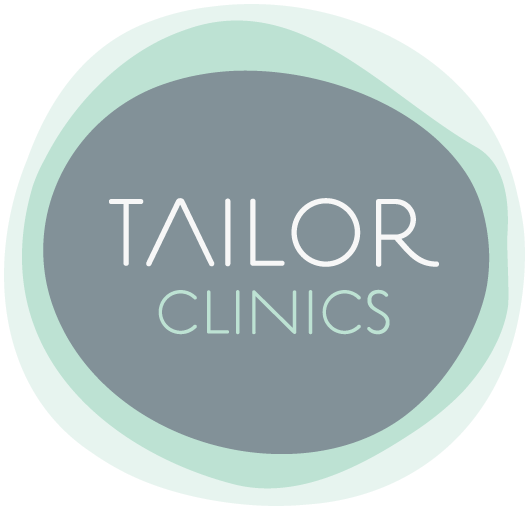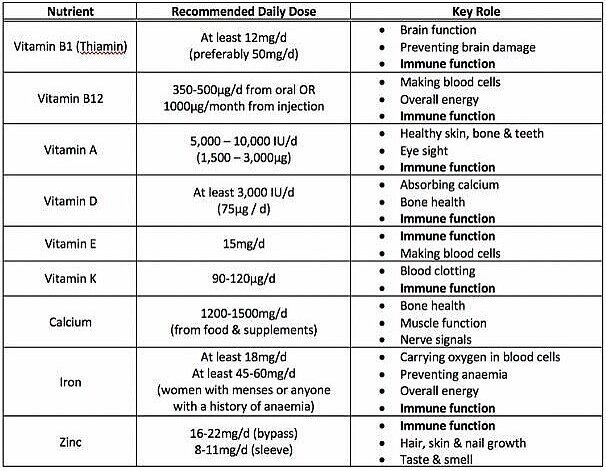The Meaning of Life… I Mean Supplements
Isn’t life just great at throwing us curve balls to try and upset our routine? This latest one with Covid has sure been one right out of the bag. In saying that, it looks like the curve’s flattened for now and we can hopefully pick up life from where we left off before lockdown. I sincerely hope everyone’s doing okay and keeping well. I say that because any curve ball can be enough for giving the mind an inch and it taking a mile in terms of letting healthy habits slip – for example, with supplements…
Can you look back at lockdown and say you were following your daily supplements plan to a tee? Instead, were you missing a day here and another day there? Or, were you perhaps putting them out of sight and therefore out of mind completely? Whichever of those camps you’re sitting in, I’m writing this for you to appreciate seeing your supplements like any other medication you might take to live a joyful and meaningful life.
As you are aware, bariatric surgery means the absorption of nutrients from the food and fluid you eat/drink is affected. Combine that with your food volume being reduced, there’s just no way you can get enough nutrition for supporting all the chemical reactions that happen in your body every day – i.e. the process of turning food into fuel. To counter that, the American Society of Metabolic and Bariatric Surgery (ASMBS) has set guidelines, based on research, for minimum levels of nutrients needing to be supplemented on a daily basis. I’ve shown these before in the Supplements and You article, but I’ll show them again here before describing who the ASMBS actually are and what they do.
The ASMBS is the largest society in the world specialising in bariatric surgery. Their mission is to “advance the art and science of metabolic and bariatric surgery by continually improving the quality and safety of care and treatment of people with obesity and related diseases.” In other words, they provide guidance for people like me, working with patients to ensure the advice I give is based on fact and evidence rather than have me stabbing in the dark with guessing. This is important for nutritional adequacy, especially with immune function hot on everyone’s lips at present.
Nutritional adequacy is critical for a strong immune function. Particularly important nutrients for this are: vitamins A, B (1 to 12), C, D, E and K; as well as minerals such as iron, zinc, and selenium. Unfortunately, it costs a lot in NZ healthcare to measure each of these nutrients in blood, and so only a select few are screened by us when you come for your review with the team. However, anyone taking a bariatric-strength supplement at the specified dose such as the Celebrate range can rest assured that they’re meeting the daily ASMBS targets but anyone on ’over-the-counter’ (OTC) alternatives may not be; especially anyone on ‘MVite’ prescribed by their GP. The following table shows you what I mean by comparing the composition of supplements at their suggested dose against ASMBS guidelines.
You’ll see that guidelines for some nutrients such as selenium are non-existent. Even so, I’m hoping you can see that ultimately all OTC supplements at their recommended dose are nowhere near giving you enough of what you need each day. This is why you’ll hear me say to have 3 Centrum Women’s 50+ if that’s what you’re taking, or suggest something completely different if you’re taking MVite. I suggest Centrum Women’s 50+, regardless of your age or sex, because the nutrient profile is better than the other varieties in the Centrum range.
Be aware though, Centrum Women’s 50+ as well as many other OTC options like Healtheries Women’s 50+ contain iron and calcium (carbonate as opposed to the preferred citrate). This will impair the absorption of both nutrients given the need for at least 2 hours between taking iron and calcium, and the fact that calcium carbonate is harder to absorb than citrate, given less stomach acid is produced after bariatric surgery.
The Take Home
Stress and anxiety from uncertain times can play havoc on anyone’s daily routine. That includes me, and the Covid crisis risks upsetting all of us (emotionally and physically). My article this month is aiming to help you find reason for consistency with your supplements if not already. Just as a cliff will erode away when a king tide strikes, your nutritional status will decline over time if you become less frequent with taking your supplements.
I know they cost money, but remember what may seem cheaper at face value with an OTC product might actually be quite nasty in terms of meeting your needs or having to take so many that you have no room for your food. That’s why I’m asking for you to please see your supplements as important as any of the medications you might have been taking before your surgery – i.e. for blood pressure, cholesterol or even diabetes.
Wishing you safety and smiles until next time.
Drew




